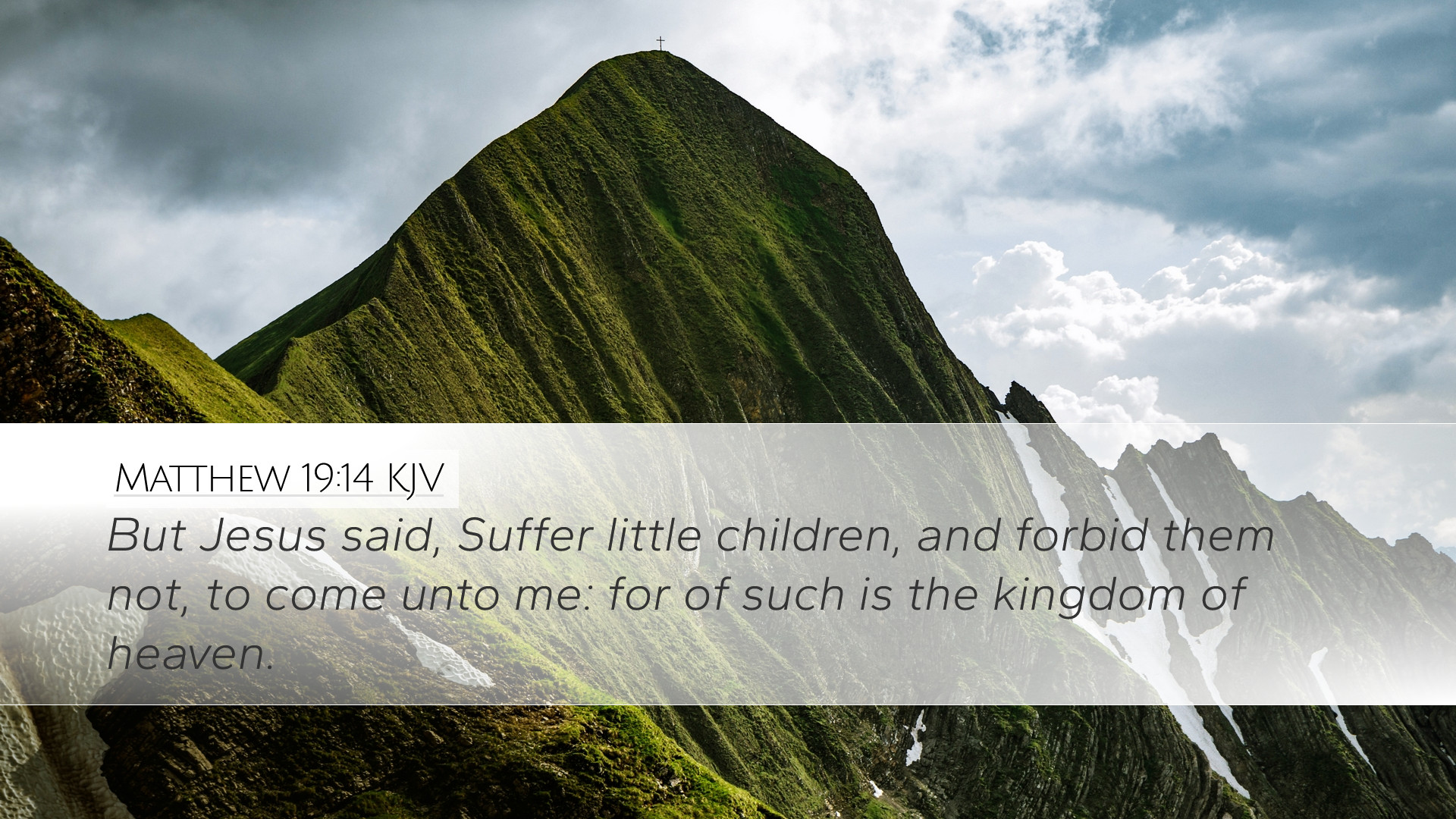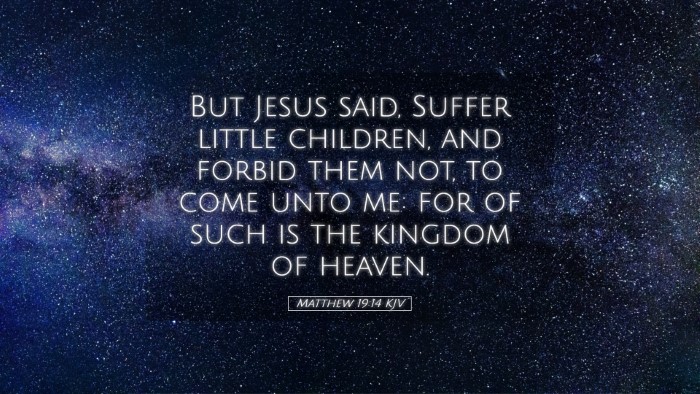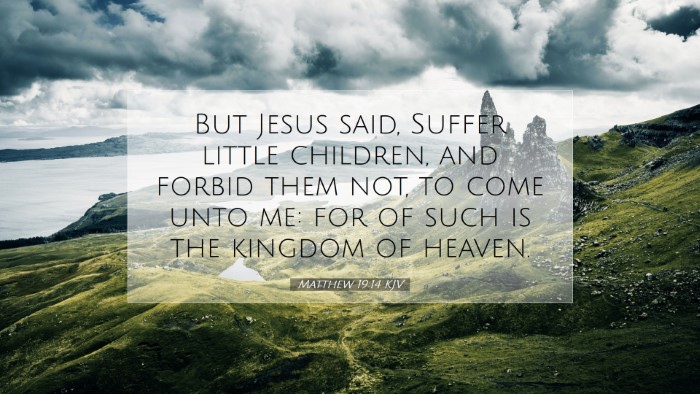Matthew 19:14 Commentary
Verse Text: "But Jesus said, 'Let the little children come to me and do not hinder them, for to such belongs the kingdom of heaven.'
Introduction
This significant verse from the Gospel of Matthew reveals the heart of Jesus towards children and underscores the nature of the kingdom of heaven. In this commentary, we draw insights from several reputable public domain commentaries to provide a deeper understanding of this important passage.
Contextual Analysis
Matthew 19:14 is set within a larger narrative that discusses various issues such as marriage, divorce, and the nature of the kingdom of heaven. The juxtaposition of children with the discussions around adult issues reveals a profound theological point: the kingdom of heaven is not merely for the learned and the self-righteous but is accessible to those who embody child-like faith.
Matthew Henry's Commentary
Matthew Henry notes that this passage emphasizes the importance of children in the kingdom of God, illustrating that God's grace and favor extend to them. Henry explains that the disciples' attempt to stop the children from approaching Jesus reflects a misunderstanding of Jesus' mission. He asserts that Jesus treasures the humble and innocent hearts of children, making a broader point that all believers should possess such qualities to enter the kingdom (Henry).
Albert Barnes' Commentary
Albert Barnes elaborates on the nature of Jesus' invitation, highlighting the open arms of Christ towards children as a metaphor for welcoming all into the fold of God. Barnes draws attention to the fact that children lack the societal status and merit that adults often seek to establish their worthiness. According to Barnes, this humility is essential for receiving the kingdom. Barnes also emphasizes that the kingdom of heaven is characterized by grace rather than merit, inviting all individuals to come as they are (Barnes).
Adam Clarke's Commentary
Adam Clarke provides a rich theological insight into the significance of children in this passage. He points out that children, without preconceived notions of entitlement, represent the ideal response to God’s call. Clarke asserts that not only does Jesus invite children, but he also uses them as exemplars of the faith required to access the divine kingdom. He stresses that Jesus' rebuke of the disciples serves as a crucial lesson about humility, simplicity, and trust (Clarke).
Theological Implications
The theological implications of this verse are profound. The nature of God’s kingdom is one of acceptance, grace, and humility. Here are several key points of consideration:
- Accessibility of the Kingdom: The kingdom is not limited to the wise, strong, or esteemed, but rather is open to the least of these—children who exemplify pure sincerity in faith.
- Child-Like Faith: Jesus emphasizes that faith must be child-like, marked by trust and innocence, free from the complexities and prejudices that often accompany adulthood.
- Representation of the Kingdom: Children symbolize purity and the attitude necessary for entering the kingdom, serving as a contrast to societal hierarchies that often exclude the vulnerable.
Practical Applications
For pastors, students, theologians, and Bible scholars, Matthew 19:14 offers numerous applications:
- Fostering an Inclusive Church Environment: Churches should strive to create environments that welcome everyone, particularly the marginalized and vulnerable, reflecting Jesus’ heart towards children.
- Preaching the Importance of Humility: Sermons can emphasize the need for believers to adopt a humble attitude, recognizing that spiritual growth often requires relinquishing one's self-reliance.
- Discipleship through Child-Like Faith: Discipleship programs could integrate insights from children’s perspectives, valuing their insights and fostering an understanding of faith that is grounded in simplicity and trust.
Conclusion
Matthew 19:14 challenges both individual believers and the church at large to assess their attitudes towards children and the qualities of humility and trust. By embracing the lessons offered in this passage, we can better reflect the inclusive nature of God's kingdom and foster faith that mirrors the innocence of a child. It is a reminder that in the eyes of God, everyone—especially the smallest among us—holds a sacred place.


